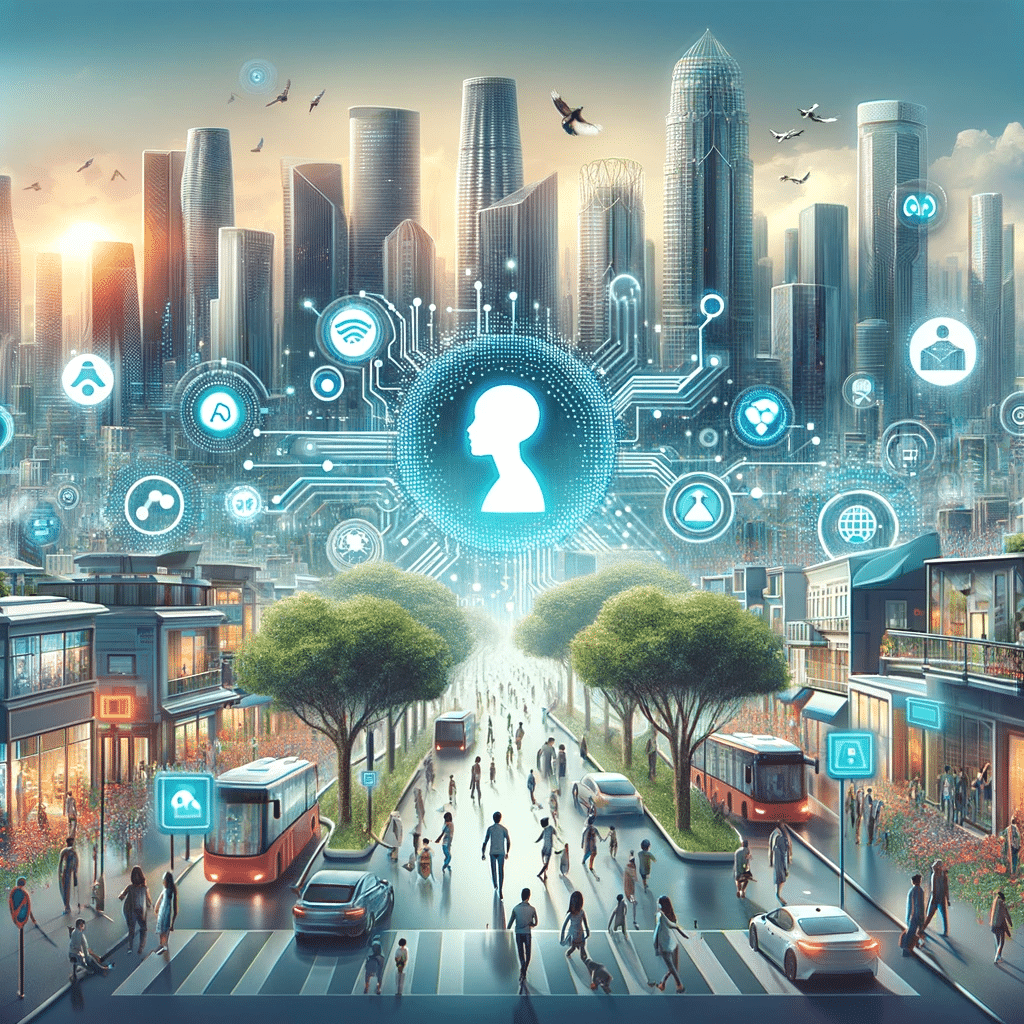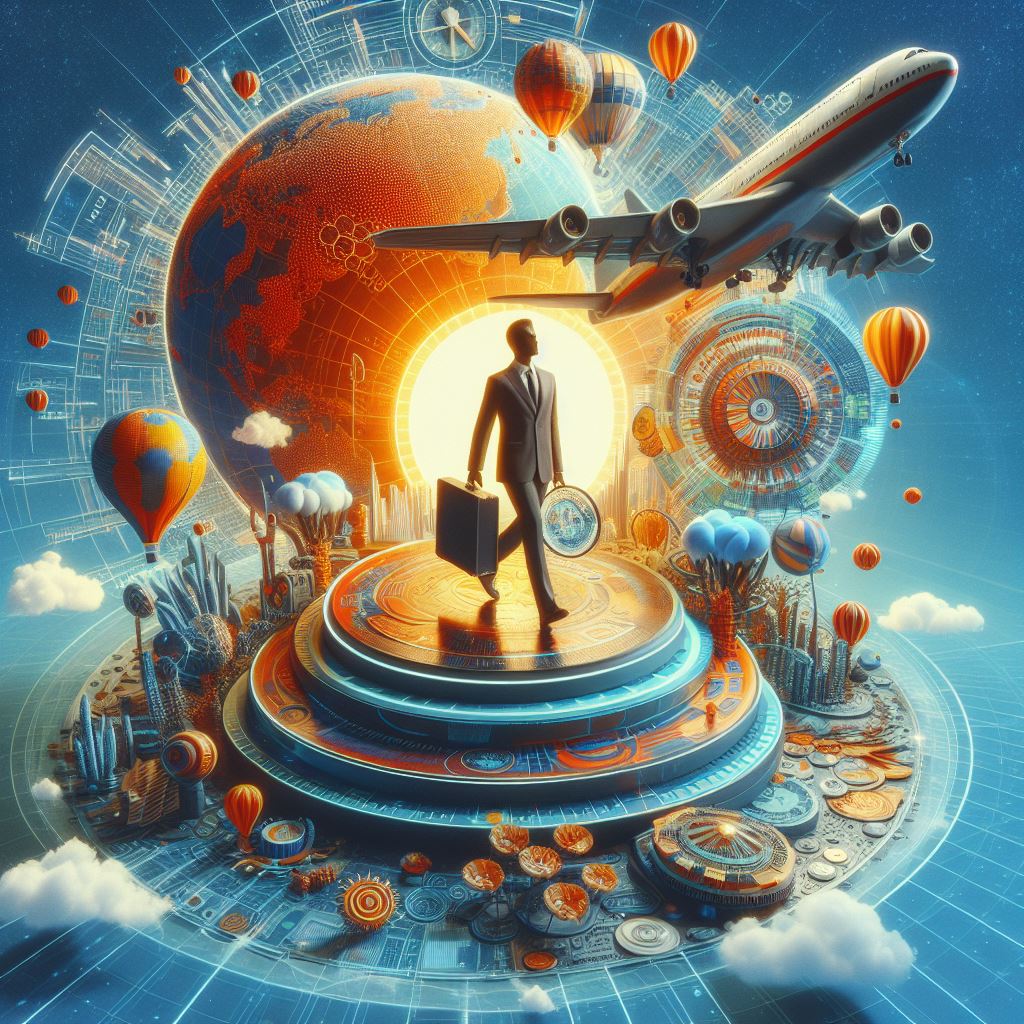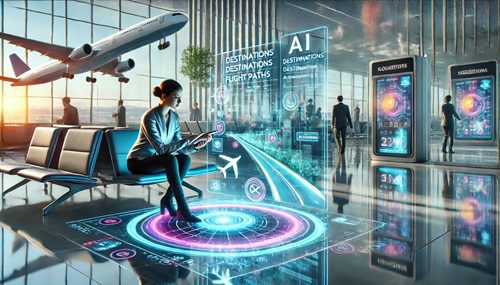
In recent years, the concept of travel has been undergoing a radical transformation. While travel has traditionally been about exploration, cultural exchange, and creating memories, the process of planning and experiencing a trip is becoming more efficient, seamless, and personalized—thanks to advancements in technology. At the forefront of this transformation is AI in travel, which is making travel more accessible, intuitive, and sustainable. Among the companies driving these changes is Hugging Face, an AI leader that is reshaping the future of travel through its cutting-edge natural language processing (NLP) models.
In this article, we explore how AI in travel—powered by Hugging Face—is revolutionizing everything from smarter travel assistants to breaking down language barriers, enhancing personalized recommendations, and even making travel more sustainable. Whether you’re booking a flight, navigating through a new city, or simply looking for a more eco-friendly way to explore, Hugging Face’s AI models are making it easier for travelers to enjoy their journeys.
1. AI in Travel: Smarter Travel Assistants for Every Journey
The travel industry is filled with complexities: flight bookings, hotel arrangements, local transportation, and finding things to do can be overwhelming, especially for first-time visitors to a new destination. As travelers, we seek convenience and efficiency, and that’s where AI in travel is stepping in to make a real difference. Hugging Face’s powerful language models are enabling the development of smarter, more personalized travel assistants that can guide travelers through every step of their journey.
Imagine this: you’re traveling to Tokyo for the first time, and instead of constantly referring to guidebooks or asking locals for directions, you have an intelligent, AI-powered travel assistant that knows exactly what you’re looking for. Whether it’s providing real-time directions, suggesting nearby attractions, or recommending hidden local gems based on your interests, these smart travel assistants simplify the entire travel experience.
These travel assistants, powered by Hugging Face’s AI, are not just limited to giving directions or recommending generic tourist spots. They can engage in natural conversations, understanding your specific preferences and needs. For example, if you tell your assistant, “I’m interested in outdoor activities and local food experiences,” the AI might suggest a hike in the nearby mountains followed by a visit to a traditional ramen shop that’s beloved by locals. The assistant could also provide real-time updates, like notifying you if a specific restaurant has a sudden opening or alerting you about special events happening during your trip.
The personalization of travel plans with Hugging Face’s AI-driven systems goes far beyond basic search queries. The more you interact with these systems, the more they learn about your preferences, ensuring that every recommendation aligns with your specific interests. In this way, Hugging Face’s AI-powered assistants not only streamline the booking and planning process but also enhance your overall travel experience by making it more intuitive and tailored to your preferences.
2. Breaking Down Language Barriers with AI in Travel
For many travelers, one of the most frustrating challenges is navigating language barriers. While many people may know basic phrases or have translation apps, there are often nuances in local languages and dialects that are missed. This can lead to misunderstandings or awkward interactions. That’s where AI in travel can truly shine, and Hugging Face’s natural language models are making great strides in improving language translation.

AI-powered translation tools have existed for some time, but they often struggle with the subtle nuances and contextual meanings that occur in everyday conversations. Hugging Face’s models, however, are designed to understand both the literal translation and the broader context, ensuring that conversations are more fluid and natural. Whether you’re traveling to a remote part of India where English is not commonly spoken or visiting a rural village in France where local dialects differ from mainstream French, Hugging Face’s AI technology can help bridge the gap.
Imagine you’re dining in a local café in Barcelona and wish to ask for the ingredients in a particular dish. With Hugging Face’s AI-powered translator, you can ask the waiter in your native language, and the system will provide an accurate and culturally appropriate translation in Spanish. This technology understands the local context, tone, and even informal speech, offering travelers a much richer and more authentic interaction.
For travelers visiting countries where multiple languages or regional dialects are spoken, Hugging Face’s models adapt to these linguistic complexities. If you’re traveling across Switzerland, for example, Hugging Face’s AI could seamlessly switch between French, German, and Italian depending on the region, ensuring you never miss a beat in communication.
In short, AI in travel is making communication smoother, more accessible, and more culturally sensitive. With Hugging Face’s technology, language barriers are no longer an obstacle to enjoying authentic travel experiences, and you can engage more meaningfully with local communities.
3. Personalized Travel Recommendations: AI in Travel Tailored Just for You
Travel is personal, and what one person enjoys in a destination may be completely different from what someone else looks for. Whether you’re a history buff, a foodie, or an adventurer, finding the right activities, accommodations, and experiences that align with your interests can often feel like a daunting task. AI in travel makes this process infinitely easier by offering hyper-personalized recommendations based on your tastes, preferences, and even past travel experiences.
Traditional travel websites often rely on broad categories like “budget,” “family-friendly,” or “luxury” to organize travel options. While this can be helpful, it often doesn’t capture the finer details of what makes an experience special. Hugging Face’s AI models go much deeper by analyzing patterns in your preferences, behaviors, and even your mood to suggest experiences that match your specific desires.
For example, say you’ve traveled to Italy before and enjoyed visiting historical sites like the Colosseum in Rome and the Uffizi Gallery in Florence. The next time you use a Hugging Face-powered assistant, it may recall your previous trips and offer similar experiences, but with a twist. “I noticed you enjoyed art history tours in Florence. Would you like to explore a private, lesser-known art gallery in Milan next time?” The system continuously learns from your choices, offering recommendations that are finely tuned to your travel style.
In addition to analyzing past behaviors, AI in travel can also adapt to your preferences during the trip itself. If you’re feeling adventurous and want to explore nature after a few days in the city, your AI assistant can immediately adjust your itinerary to suggest outdoor activities like a hiking trip or a visit to a nearby national park.

By continuously evolving with your travel habits, Hugging Face’s AI-powered assistants offer a level of personalization that is difficult to match with traditional recommendation systems. Travelers can feel confident that their itineraries are tailored to their exact desires, and they can explore destinations in ways that feel uniquely their own.
4. Enhancing Customer Service: AI in Travel Makes Support More Efficient
Dealing with customer service can often be one of the most stressful aspects of travel. Whether it’s a flight delay, a lost luggage incident, or a problem with your hotel booking, waiting on hold or trying to communicate with an agent who isn’t fully equipped to handle your issue can make a frustrating situation even worse. This is where AI in travel is making a huge difference.

Hugging Face’s conversational AI models are enhancing customer service by providing travelers with more efficient and personalized support. Whether you’re handling a booking issue, changing travel plans, or asking for real-time assistance, AI-powered systems are equipped to address these concerns quickly and accurately.
For instance, if your flight is canceled, an AI assistant could instantly provide options for rebooking, suggest nearby hotels for an overnight stay, and even offer alternative travel routes. The AI understands the urgency of your situation and can offer solutions immediately, without the need for long wait times or repetitive questions. Similarly, if you’ve encountered an issue with your hotel reservation, an AI-powered chatbot could quickly assist with making changes or finding alternative accommodations, providing peace of mind even in stressful situations.
Beyond the immediate problem-solving abilities, AI systems powered by Hugging Face can also anticipate potential issues before they arise. For example, if your flight is delayed, the system could automatically notify you of the delay and help you adjust your travel plans or rebook activities without you needing to do anything.
By integrating Hugging Face’s AI into customer service workflows, travel companies can deliver faster, more personalized assistance that makes the overall experience less stressful for travelers.
5. Sustainable Travel with AI: Making Green Choices Easier
With the rise of eco-consciousness among travelers, there is a growing demand for greener, more sustainable travel options. Travelers want to reduce their carbon footprints and make more environmentally responsible choices while exploring the world. AI in travel can play a crucial role in making this process easier and more accessible, and Hugging Face’s models are helping to drive sustainability efforts.
Imagine you’re planning a trip to Europe, and you’re unsure about which transportation method to choose. A Hugging Face-powered travel assistant could analyze your travel route and suggest more eco-friendly options, such as taking a train instead of a short-haul flight. Similarly, when booking accommodation, the assistant might prioritize eco-conscious hotels that follow sustainable practices, such as using renewable energy or implementing water-saving initiatives.
Additionally, AI in travel can also help travelers make better choices regarding activities and experiences. For example, Hugging Face’s AI might suggest visiting local nature reserves, participating in eco-tourism activities, or volunteering for a conservation project while traveling. These types of experiences not only benefit the environment but also promote responsible tourism, ensuring that travelers leave a positive impact on the places they visit.
By leveraging AI in travel, Hugging Face is helping to guide travelers toward greener options, reducing the negative environmental impact of tourism, and promoting a more sustainable way of exploring the world.
6. AI in Travel Search: Making Travel Planning More Intuitive
Traditional search engines often rely on broad filters—like location, price, and ratings—to help travelers find relevant options. While these filters can be useful, they rarely offer the depth or nuance that modern travelers need. AI in travel is changing this by making the search process far more intuitive, using natural language understanding to understand and respond to specific traveler queries.

For instance, instead of entering basic keywords into a search engine, travelers can ask conversational questions like:
- “Where can I find the best beaches in Croatia?”
- “I’m looking for a peaceful countryside retreat in Tuscany for a weekend getaway.”
- “Can you recommend a family-friendly hotel in Paris with a pool?”
Hugging Face’s AI-powered travel search systems are able to understand these types of questions and provide recommendations that are far more tailored to the user’s needs. This intuitive, conversational approach not only saves time but also ensures that travelers find the best options without feeling overwhelmed by the sheer number of choices.
By understanding the intent behind each query, AI in travel offers more precise and relevant results. Whether you’re searching for the perfect vacation spot or looking for something unique, Hugging Face’s AI models can provide travel recommendations that are closely aligned with your preferences and desires.
7. The Future of Travel: Embracing AI for Smarter, More Connected Journeys
The future of travel is undeniably intertwined with artificial intelligence. AI in travel, particularly through Hugging Face’s advanced NLP technology, is transforming the way we plan, experience, and remember our trips. From smarter travel assistants to more personalized recommendations, AI is making travel easier, more enjoyable, and more sustainable.

As Hugging Face continues to refine its models, the opportunities for travelers will only grow. AI will continue to enhance every aspect of the journey, from real-time customer support and personalized travel planning to breaking language barriers and making sustainable choices more accessible. In a world where technology is driving change at an unprecedented pace, AI in travel will undoubtedly shape how we explore the world in the future.
Conclusion: AI in Travel—A New Era of Exploration
The integration of AI in travel is a game-changer. Hugging Face is at the forefront of this revolution, helping travelers navigate their journeys in smarter, more efficient, and personalized ways. Whether it’s breaking language barriers, providing personalized travel recommendations, improving customer service, or offering greener travel options, Hugging Face’s AI technology is enhancing every facet of the travel experience.
As the world of travel continues to evolve, embracing AI in travel will make exploring the world more accessible, sustainable, and enjoyable for all. So, the next time you plan a trip, think about how AI in travel can help you navigate the complexities of your journey and ensure that every aspect of your adventure is as enriching as the destination itself.
